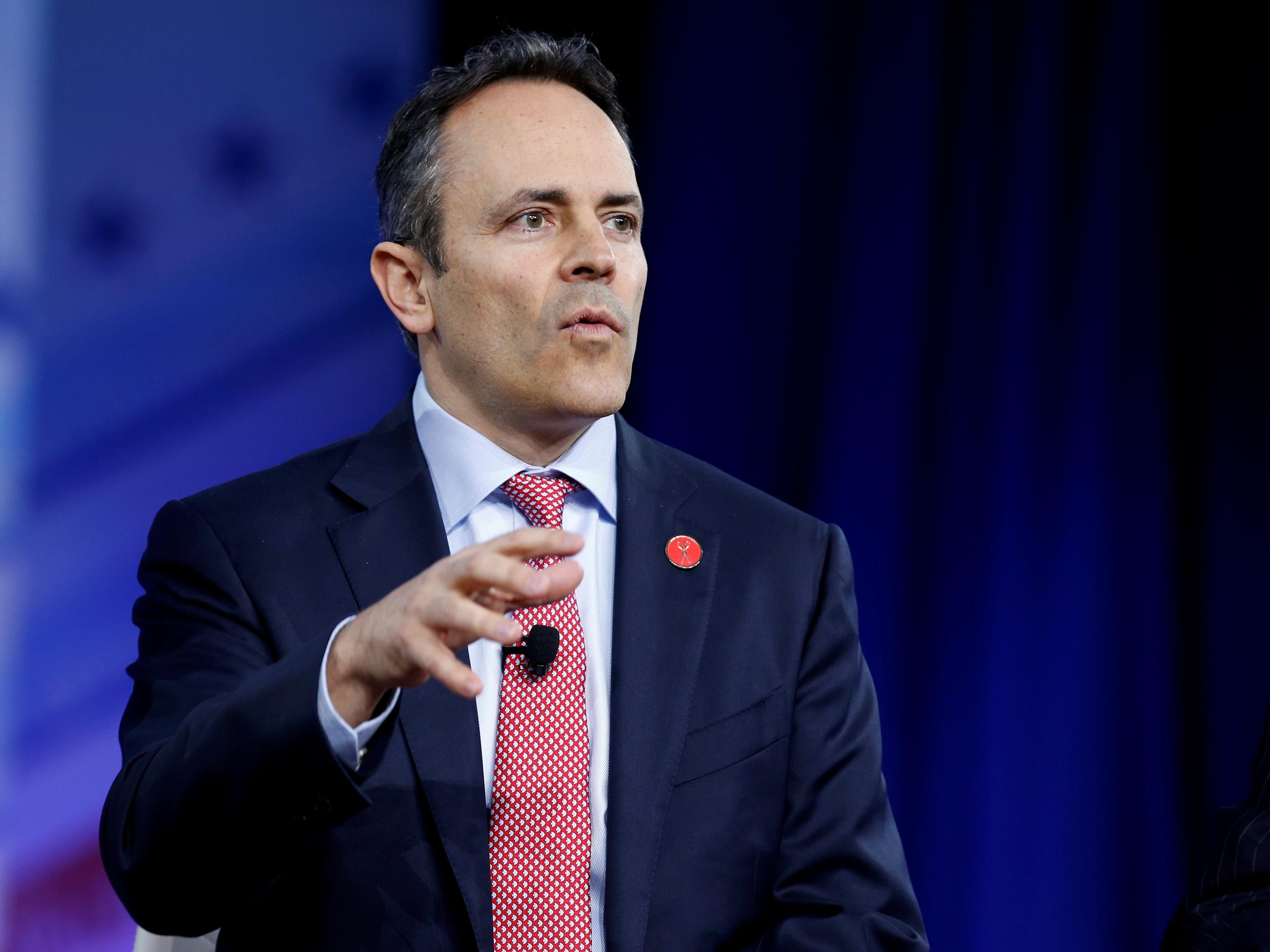Kentucky governor pardons killer whose family donated to his campaign days before leaving office
Senate majority leader Mitch McConnell condemns fellow Republican: 'It seems to me it was completely inappropriate'

The outgoing Republican governor of Kentucky has sparked outrage after he pardoned a convicted killer whose family had hosted a fundraiser for the politician and given him money.
Matt Bevin, who was defeated in his bid for re-election in November, has issued over 400 pardons in his final days in office.
Among those were Patrick Baker, who had been sentenced to 19 years in jail in 2017 after he impersonated a police officer to force his way into a home, then shot a man inside.
In 2018, Baker’s family hosted a fundraising event for Mr Bevin, which scooped $21,500 for the governor. Baker’s brother and sister-in-law also personally donated a further $4,000 to Mr Bevin’s ultimately unsuccessful re-election campaign.
The state prosecutor who led the effort to convict Baker for the fatal 2014 home invasion said it would an “understatement to say I am aggrieved” by the pardon.
“What makes Mr. Baker any different than the other two?" Mr Steele told the Louisville Courier-Journal, which first reported the controversial pardoning. Two other men also convicted of involvement in the same death as Baker remain in prison.
Mr Bevin wrote in the official order announcing Baker’s pardon that the evidence used to convict him was “sketchy at best”.
He had made a “series of unwise decisions in his adult life”, Mr Bevin added, suggesting a drug problem had led to Baker falling in with the wrong crowd.
But the judge who sentenced Baker in 2017, David Williams, said he had never seen a more “compelling or complete” case in his thirty years of experience. “The evidence was just overwhelming.”
Mr Steele told the newspaper he believed the only reason Mr Bevin issued the pardon while leaving the two co-conspirators in prison was because Baker’s family had donated money to the governor.
Baker is not the only controversial pardon Mr Bevin made as he left office. He also pardoned a man convicted of beheading a woman, a child rapist, a man who hired a hitman to murder his business partner in front of his family, and a woman who dumped her new-born child in a toilet septic tank.

Even Senate Majority Leader Mitch McConnell has condemned his fellow Republican. “Honestly, I don’t approve. It seems to me it was completely inappropriate,” Mr McConnell said when questioned by reporters about the slew of controversial pardons.
“I expect he had the power to do it, but looking at the examples of people who were incarcerated as a result of heinous crimes — no, I don’t approve of it.”
“What this governor did is an absolute atrocity of justice,” said Mr Steele. “He’s put victims, he’s put others in our community in danger.”
Several senior Kentucky Democratic politicians have already written to the state’s incoming attorney general demanding a bipartisan special prosecutor be appointed to investigate the governor’s actions, and in particular the pardon for Baker.

In response to the controversy, Mr Bevin told the Washington Post he was a “big believer in second chances”.
“I think this is a nation that was founded on the concept of redemption and second chances and new pages in life.
“If there has been a change and there’s no further value that comes for the individual, for society, for the victims, for anybody, if a person continues to stay in, then that’s when somebody should be considered for a commutation or a pardon.”
Join our commenting forum
Join thought-provoking conversations, follow other Independent readers and see their replies
Comments
Bookmark popover
Removed from bookmarks